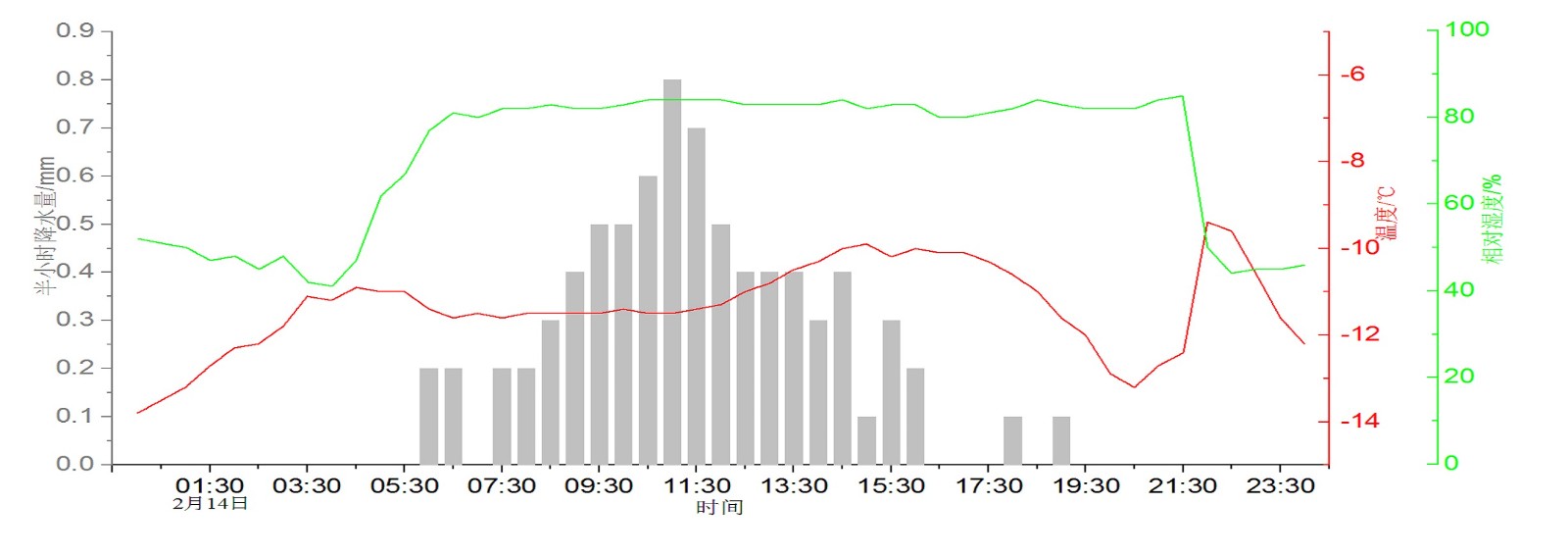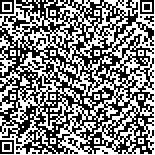本文已被:浏览 449次 下载 2838次
投稿时间:2022-01-04 修订日期:2022-11-22
投稿时间:2022-01-04 修订日期:2022-11-22
中文摘要: 基于观测资料和中尺度数值模式WRF对2019年2月14日发生在北京地区的一次典型低涡低槽型降雪系统进行了观测资料分析和数值模拟,研究了降雪产生的云微物理机制,探讨了雪的形成过程并进行了人工催化降雪的数值模拟分析。结果表明:低涡前部暖湿平流带来的水汽和低涡切变线附近强烈的上升运动造成了此次区域性大雪;雪的凝华增长、雪降落过程中凇附云水继续长大、云冰自动转换为雪、冰晶和雪碰并聚合是此次降雪的主要微物理过程。催化模拟显示,人工播撒碘化银催化剂之后,云中产生大量冰晶,增多的冰晶通过凝华增长、碰并、聚合、凇附等转换成雪的过程增加,进而造成地面降雪的增加。
中文关键词: 降雪,微物理机制,催化
Abstract:Based on the observational data and the mesoscale numerical model WRF, a typical low-vortex low-trough snowfall system that occurred in Beijing on 14 February 2019 is analyzed and numerically simulated. The microphysical mechanism and formation process of snowfall are discussed, and the numerical simulation of cloud seeding is analyzed. The results show that the water vapor caused by warm and humid advection near the low vortex front and the strong upward movement near the low vortex shear line gave rise to the regional snowfall event. The sublimation growth of snow, the cloud water rimming on falling snow, the automatic conversion of cloud ice into snow, the ice crystals and snow collisions and aggregation were the main microphysical processes. Seeding simulation shows that after the seeding of silver iodide (AgI), a large number of ice crystals are generated in the cloud, and the increased ice crystals are converted into snow through sublimation growth, collision, aggregation and attachment, etc., which in turn leads to an increase in ground snowfall.
文章编号: 中图分类号: 文献标志码:
基金项目:北京市自然科学基金项目(8222053、8182024)、国家自然科学基金项目(42005078)和北京市科技计划课题(Z221100005222016)共同资助
引用文本:
刘香娥,何晖,陈羿辰,韩晓晨,高茜,王永庆,杨燕,2023.北京山区降雪微物理机制及催化影响的数值模拟研究[J].气象,49(4):439-453.
LIU Xiang’e,HE Hui,CHEN Yichen,HAN Xiaochen,GAO Qian,WANG Yongqing,YANG Yan,2023.Numerical Simulation About the Microphysical Mechanism and Cloud Seeding Impacts on Snowfall in Mountain Area in Beijing[J].Meteor Mon,49(4):439-453.
刘香娥,何晖,陈羿辰,韩晓晨,高茜,王永庆,杨燕,2023.北京山区降雪微物理机制及催化影响的数值模拟研究[J].气象,49(4):439-453.
LIU Xiang’e,HE Hui,CHEN Yichen,HAN Xiaochen,GAO Qian,WANG Yongqing,YANG Yan,2023.Numerical Simulation About the Microphysical Mechanism and Cloud Seeding Impacts on Snowfall in Mountain Area in Beijing[J].Meteor Mon,49(4):439-453.


